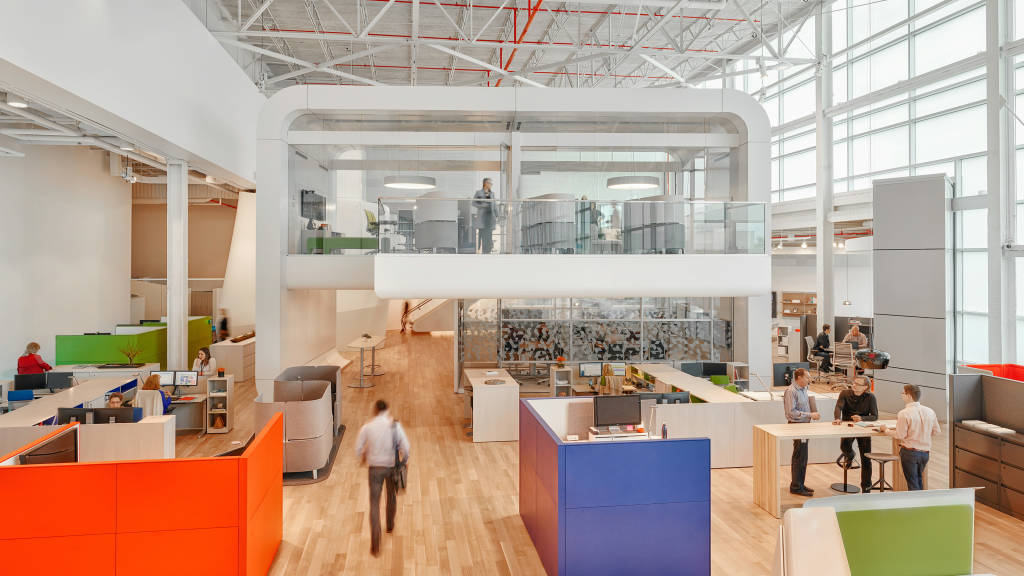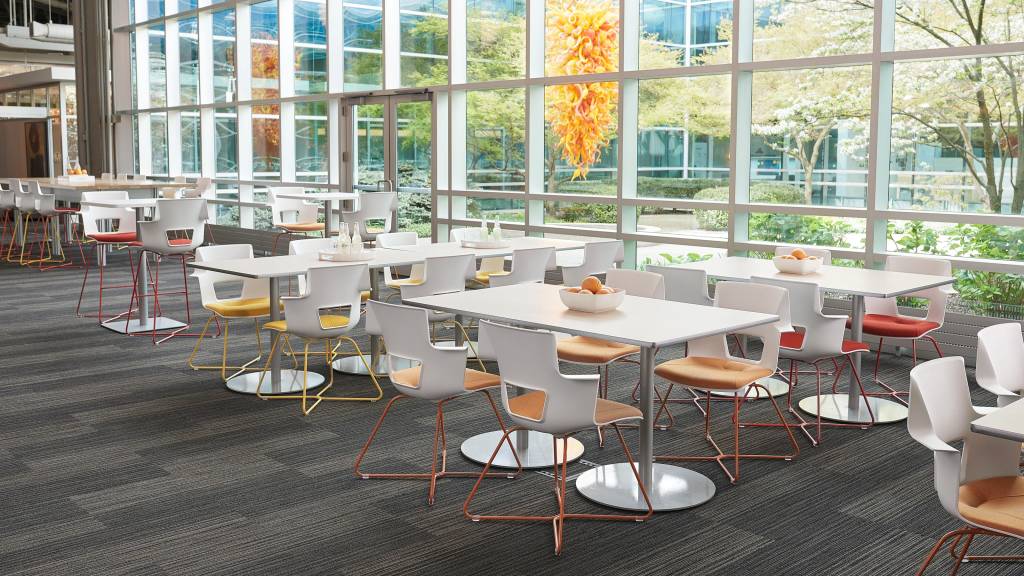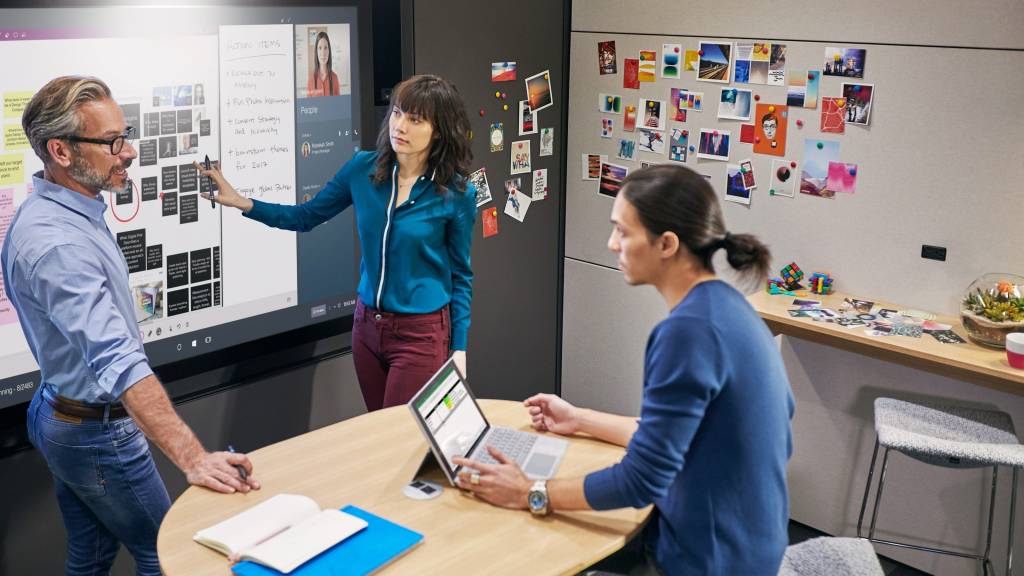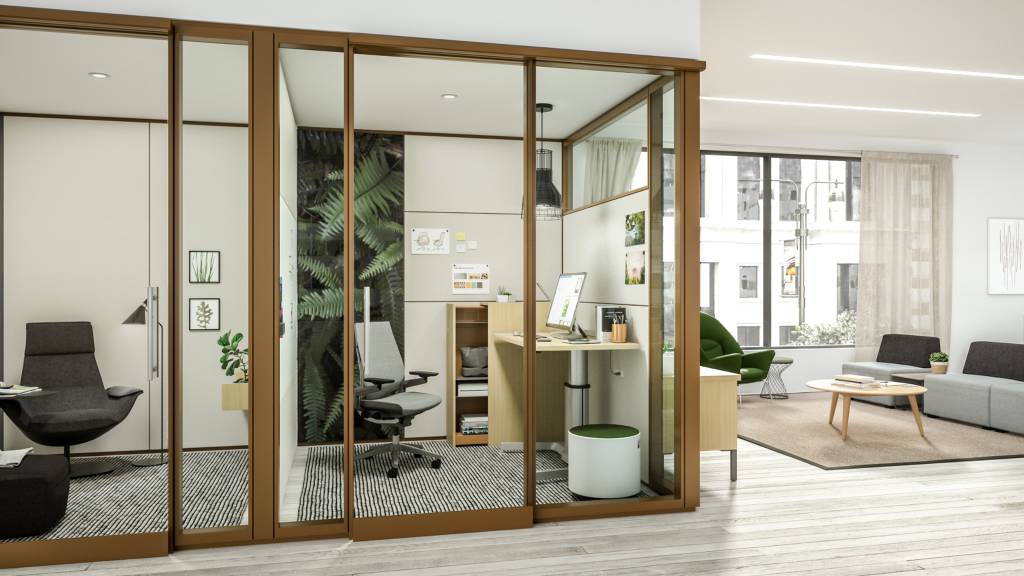Five Ways the Office Can Help Combat Loneliness
Research suggests companies should make fostering social connections a strategic priority.
We can reach each other anywhere and at any time by phone, email, instant message and social networks. We’re more connected than ever, right? Wrong. Forty percent of American adults report feeling lonely (AARP), a number that’s doubled since the 1980s. Former U.S. Surgeon General, Vice Admiral Dr. Vivek Murthy, recently called loneliness a growing health epidemic (HBR) and called on companies to help solve the problem.
At work, half of CEOs feel lonely and many other employees are impacted as well (HBR). Research tells us this sense of isolation increases stress, harms our health, lowers performance, reduces creativity and limits reasoning and decision making.
Dr. Murthy suggests one of the fastest, most effective ways to help address loneliness is where we spend most of our time — at work.
“Companies in particular have the power to drive change at a societal level not only by strengthening connections among employees, partners and clients but also by serving as an innovation hub that can inspire other organizations to address loneliness,” he writes.
Mobile work and telecommuting are modern-day barriers as organizations try to strengthen relationships and trust among teams. Even in the office, a culture of intense focus can translate into back-to-back meetings and constant focus on a screen leaving little time to interact with colleagues in a genuine way.
Work, at its core, is a social endeavor. Trust, belonging and a sense of purpose stem from meaningful connections. Dr. Murthy stresses the importance of quality interactions. It’s not enough to say “hello” in the hallway or “how are you?” as you pass someone. We need to care enough about our colleagues to know them as human beings and cultivate strong relationships. Dr. Murthy says companies should make fostering social connections at work a strategic priority.
A large number of studies show social connections improve work performance. They are sick less, learn faster and display more mental acuity (HBR). Steelcase insights suggest five ways to use the workplace as a tool to encourage social connections and combat workplace loneliness.
1. Provide a collection of social spaces

Offer employees a variety of informal postures and places to get their work done and connect with others. By providing a collection of spaces — informal lounge areas, quick touchdown spots, perch seating — resident and nomadic workers can quickly switch between formal-work and informal-social coverations.
2. Facilitate unplanned social connections

Sometimes the most valuable conversations are those that don’t appear on your calendar. By intentionally creating footpaths from one part of a building to another, or encouraging people to converge for coffee or a snack, you can increase the likelihood of valuable serendipitous connections.
3. Leverage your cafe

A WorkCafé is a dynamic space that transforms a traditional corporate cafeteria into destinations for connection, collaboration, focus and innovation. It can be used throughout the work day as both a place to eat, socialize, retreat or engage.
4. Be mindful of distributed team members

Technology helps us feel closer than ever to our distributed team members. Cameras should allow distributed colleagues to feel like they are in the room. They need to be able to see content on the whiteboard and hear everyone clearly. Consider ending a meeting a few minutes early to let them share something about their lives or schedule a video connection just to socialize.
5. Balance socialization with privacy

Building strong relationships includes being mindful of needs for privacy as well. People can’t be social all the time. They need places to focus, rejuvenate or have a confidential conversation. A well-designed workplace includes options for individual and team privacy.


